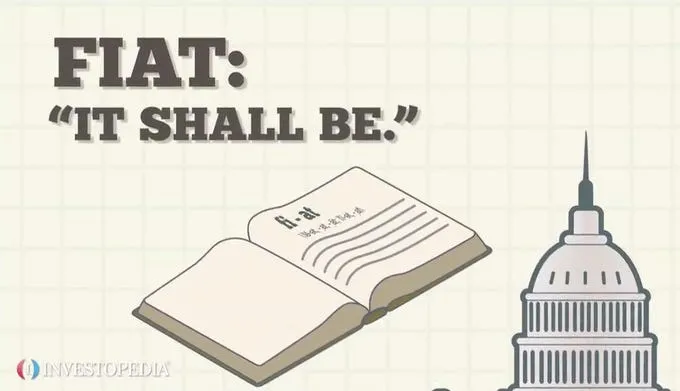Bitcoin has been surging lately, only I'm not just referring to the price. The popularity and media exposure of the cryptocurrency has also been surging, as of late. This attention its received is largely due to the fact Bitcoin, and other cryptocurrencies, are something the world has never seen before.
(Feel free to watch the video, or continue reading down below)
Regardless of your feelings on cryptocurrencies, the fact remains that they pose an serious threat to the future of the world's fiat currencies. Sure, they share some problems with fiat currencies. The main one that matters to me, as well as fellow silver and gold investors, is that the asset itself has no real, tangible wealth. Instead, the value of cryptos, such as Bitcoin, are determined by the value people put on them, and the utility they have as a means of exchange. However, don't get me wrong. Cryptocurrencies still have many advantages over fiat currencies. In fact, the threat they pose to the dollar, pound, euro, yen, etc., is the number on reason I've softened up to the idea of cryptos.

How Fiat Works
This changed, when I heard precious metals analyst, Andy Hoffman, refer to precious metals and cryptos as "The Twin Destroyers of the Fiat Regime." I began to see the threat they posed to fiat currencies, and I've since warmed up to them considerably. Among these advantages, is that because of the blockchain technology they are built upon, there is often higher levels of anonymity. Paradoxically, this anonymity also goes hand in hand with high levels of transparency.

The most important attribute of cryptocurrencies, is that they are generally not centralized, but rather, they are decentralized. Sure, they may have creators or developers, but they are not issued by a central government or central bank. Furthermore, most of these cryptos have limits on how much currency can be created at once. Some, such as Bitcoin, put a limit on the total amount that can ever be created. This is the opposite of the fiat currencies of the world, which are issued by a central government entity. Furthermore, there is no limit on how much currency can be created. The Federal Reserve can create trillions of dollars out of thin air (they have). In fact, in theory, they could even create money without necessarily making it public. They can destroy the purchasing power of their citizens, without them even knowing.

Getting to the main question, will governments make cryptocurrencies illegal? Yes, without a doubt, I think some governments around the world will restrict these currencies. However, it may not occur in every jurisdiction, and the level of regulation will vary.
The premise for these regulations and/or prohibitions, will be three things, in my opinion. The government will make the case that cryptos are used to fund terrorism, facilitate drug and/or human trafficking, and allow people to dodge taxes. The first two reasons are most likely, because they tug on the heart strings of Americans. It's very unlikely that they publicly say that it is about protecting their Monopoly money monopoly (think about it).
There are a variety of different regulations that could put on cryptos, without outright banning them. However, make no mistake, any significant regulation will undermine the currency as a whole. The first regulation, that I believe will happen quite soon in the United States and Western Europe, will be a requirement to register your wallet. For most owners, this is easily accomplished by their hosting service, such as Coinbase. By doing so, some level of anonymity no longer exists. Yes, individuals could disobey this order. However, unfortunately, most would obey the law. This would make transfers between registered and unregistered wallets, quite risky for the "legal" individual.
The next level of regulation, which is largely impossible without anonymity removed, is taxation. As far as I know, profits on cryptos are only taxable if the individual takes them out of cryptos altogether. I suspect that this will change. If you profited in a new altcoin, and you want to park your profits in Bitcoin, I believe the government will begin treating that as a taxable investment profit. I'm not convinced the government is all that interested in this small chunk of revenue; I think they would institute such regulations in an attempt to squash high amounts of fiat being traded in for cryptocurrencies. To that end, I think it is possible that countries such as China, would limit the amount an individual could transfer into cryptocurrencies, in a certain time frame.

The final step is to ban cryptocurrencies altogether. I believe that this likely will not begin in the United States. Instead, more authoriarian countries, such as China, India, Russia, and some Middle Eastern countries will be first. (A few smaller countries have already made Bitcoin illegal). My money is on China being the first. However, I think some European countries will soon follow suit. Eventually, I would not at all be surprised to see the United States ban these currencies. Of course, we can hope that, if this happens, it is only proof that fiat currencies are on the verge of total collapse. A ban would have serious consequences on the market. Use would drop significantly, since becoming a felon in order to buy Bitcoin, would likely not be a mainstream idea (yet).

Cryptocurrencies are at a strange juncture. With the more popularity they gain, the more likely it is they will be regulated. However, as they grow, it becomes more likely a ban would be ineffective or widely unpopular. As much as proponents of cryptos try to grow the market, I believe most growth, going forward, will be organic. There are billions of people looking to flee fiat currencies, they just don't all know it yet. Some will go to cryptos, some will go to precious metals. Some will go to both. But make no mistake, the days of fiat currency are numbered.
Image Sources: https://docs.google.com/document/d/12MnbCggmQSbzgN6d2XBQADJre41ezJ9q3R3F1W7y0Jc/edit?usp=sharing